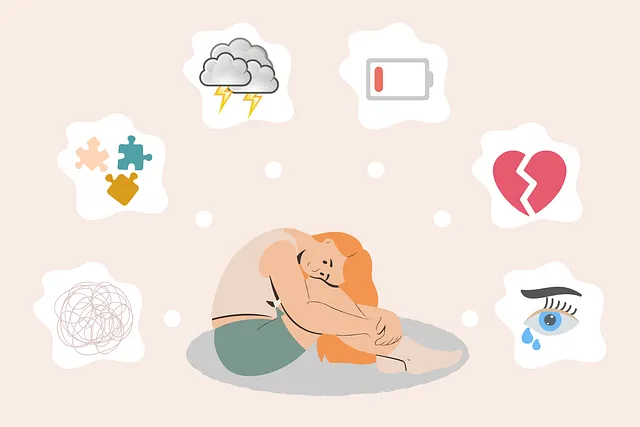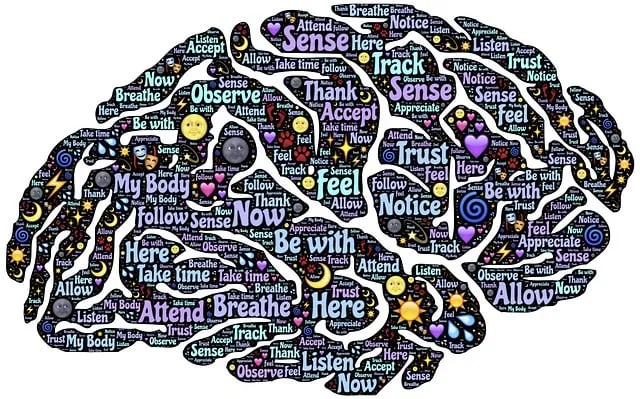Kaiser Permanente behavioral health services Northglenn offer crisis intervention with a multi-faceted approach, integrating trauma support, stress management, and positive thinking exercises. They emphasize personalized safety plans, cultural sensitivity, and evidence-based techniques like Active Listening, Emotional Intelligence, and cognitive reframing for deescalation and stabilization. Post-crisis, their comprehensive counseling, group therapy, and Mental Wellness Coaching Programs aid emotional healing and empower residents to manage mental health proactively.
In today’s fast-paced world, effective crisis intervention is vital for addressing immediate risks while fostering long-term well-being. This article explores comprehensive strategies for navigating crises within the context of behavioral health, focusing on the unique resources available at Kaiser Permanente Northglenn. We delve into assessing risk, evidence-based deescalation techniques, and post-crisis care, highlighting how these services support individuals in the vibrant community of Northglenn. Discover how Kaiser Permanente’s holistic approach revolutionizes care.
- Understanding Crisis Intervention for Behavioral Health
- Kaiser Permanente Northglenn: A Hub for Support Services
- Assessing Risk and Safety Planning Strategies
- Evidence-Based Techniques for Deescalation and Stabilization
- Post-Crisis Care and Community Resources in Northglenn
Understanding Crisis Intervention for Behavioral Health

Crisis intervention is a critical component of behavioral health services, offering immediate support and guidance during moments of intense distress or trauma. At Kaiser Permanente behavioral health services Northglenn, our team is dedicated to providing effective crisis intervention strategies tailored to each individual’s unique needs. We recognize that crises can be overwhelming, and our goal is to offer a safe space for individuals to process their emotions, gain insights, and develop coping mechanisms.
Through a multi-faceted approach, we integrate trauma support services, stress management techniques, and positive thinking exercises into our crisis intervention protocols. By addressing the root causes of distress and empowering individuals with practical tools, we enable them to navigate challenging situations more effectively. Our specialized services are designed to foster resilience, promote healing from past traumas, and enhance overall well-being.
Kaiser Permanente Northglenn: A Hub for Support Services

Kaiser Permanente Northglenn serves as a pivotal hub for diverse support services, including its robust behavioral health offerings. This healthcare facility recognizes the importance of crisis intervention strategies in addressing the complex needs of individuals facing emotional distress and mental health challenges. As such, it provides specialized care through a comprehensive range of services tailored to help patients navigate turbulent times.
The organization’s commitment to holistic well-being is evident in its approach to crisis intervention. Kaiser Permanente Northglenn incorporates evidence-based practices, such as Emotional Regulation techniques and Social Skills Training, into its guidance programs. These initiatives empower individuals with the tools necessary to manage crises effectively, foster resilience, and promote long-term mental health stability. By integrating these strategies, Kaiser Permanente behavioral health services Northglenn ensures that patients receive the comprehensive care they need during challenging periods, setting them on a path towards improved emotional well-being and enhanced quality of life.
Assessing Risk and Safety Planning Strategies

When providing crisis intervention strategies, assessing risk and implementing safety planning are paramount. Similar to the services offered by Kaiser Permanente behavioral health services Northglenn, professionals must thoroughly evaluate the individual’s immediate danger and potential outcomes. This involves understanding the severity of the crisis, identifying any self-harm or harm to others, and gauging the person’s ability to manage their well-being safely. Safety planning should be tailored, considering the client’s unique circumstances, strengths, and coping mechanisms, including Self-Care Practices and Mindfulness Meditation techniques that foster resilience.
Cultural Sensitivity in Mental Healthcare Practice plays a crucial role in this process. It requires professionals to approach each situation with an understanding of the individual’s cultural background, values, and beliefs. This sensitivity ensures that safety plans are respectful, appropriate, and accessible to diverse populations. By incorporating culturally relevant strategies, practitioners can better connect with clients, fostering trust and open communication, which is essential for effective crisis intervention and long-term mental health support.
Evidence-Based Techniques for Deescalation and Stabilization

In the realm of crisis intervention, evidence-based techniques are instrumental in effectively deescalating and stabilizing situations, as demonstrated by Kaiser Permanente behavioral health services Northglenn. Strategies such as Active Listening, a cornerstone of de-escalation, foster understanding and empathy, enabling professionals to connect with individuals in distress on a deeper level. This approach, backed by extensive research, promotes resilience building by creating a safe space for expression, which is crucial in navigating challenging behaviors.
Additionally, incorporating Emotional Intelligence into crisis intervention strategies enhances the ability to recognize and manage both one’s own emotions and those of others. Encouraging positive thinking through techniques like cognitive reframing helps individuals reframe negative thoughts, cultivating hope and a more optimistic outlook. These evidence-based methods not only support immediate deescalation but also contribute to long-term emotional well-being, fostering an environment conducive to recovery and personal growth.
Post-Crisis Care and Community Resources in Northglenn

After a crisis, the focus shifts to post-crisis care and support within Northglenn’s community. Kaiser Permanente behavioral health services play a pivotal role in this phase, offering specialized assistance for individuals who have experienced traumatic events. Their expert team provides tailored interventions aimed at promoting emotional healing processes and fostering mental wellness.
The availability of various resources, including counseling sessions, group therapy, and even Self-Awareness Exercises, ensures that residents can navigate their recovery journeys effectively. Additionally, the development of Mental Wellness Coaching Programs has been a game-changer in empowering individuals to take control of their mental health. These initiatives, coupled with community support networks, contribute significantly to building resilience and enhancing overall well-being in Northglenn.
In conclusion, effective crisis intervention strategies are vital for addressing behavioral health challenges. Kaiser Permanente’s comprehensive approach, exemplified by its Northglenn hub, integrates assessment, deescalation, and post-crisis care using evidence-based techniques. By leveraging these strategies and local resources like those available in Northglenn, we can foster a supportive environment that enables individuals to navigate crises and emerge with enhanced resilience. Kaiser Permanente’s behavioral health services in Northglenn serve as a model for communities worldwide looking to improve crisis intervention guidance.






